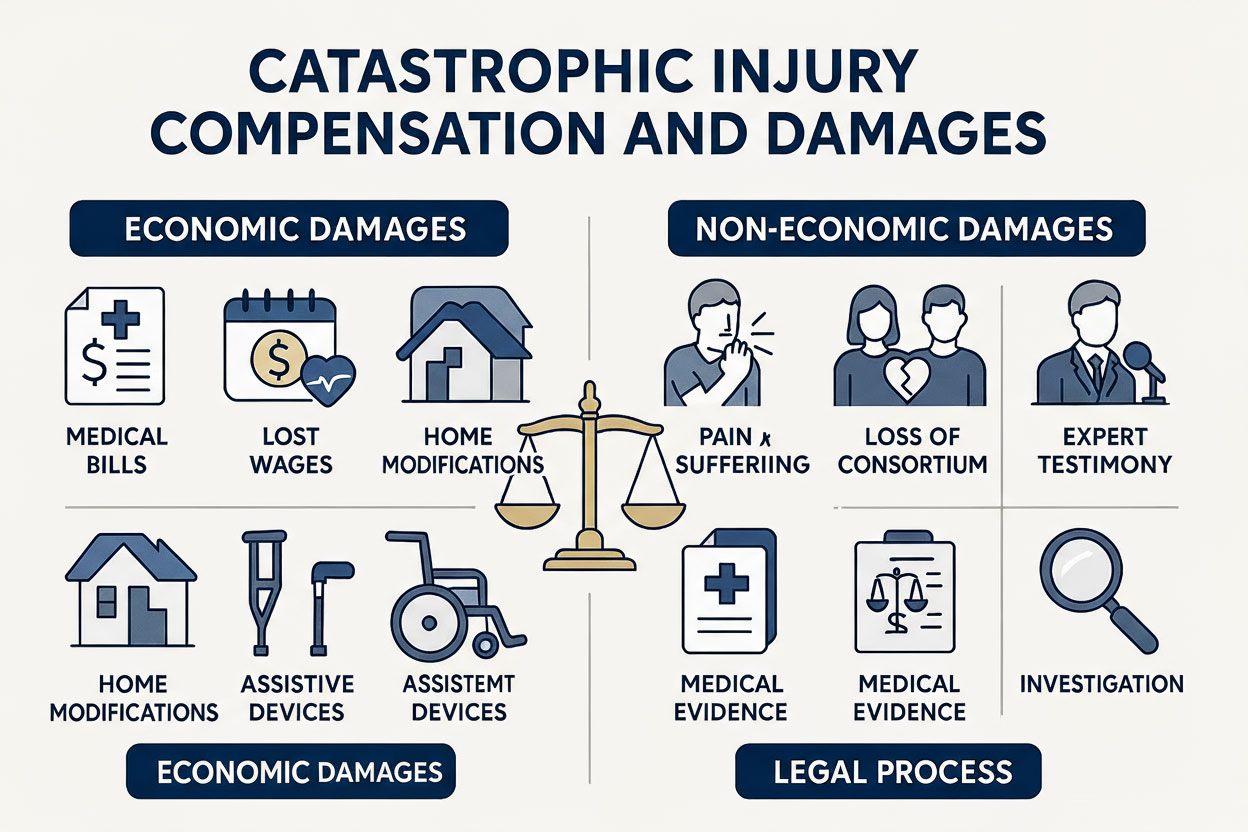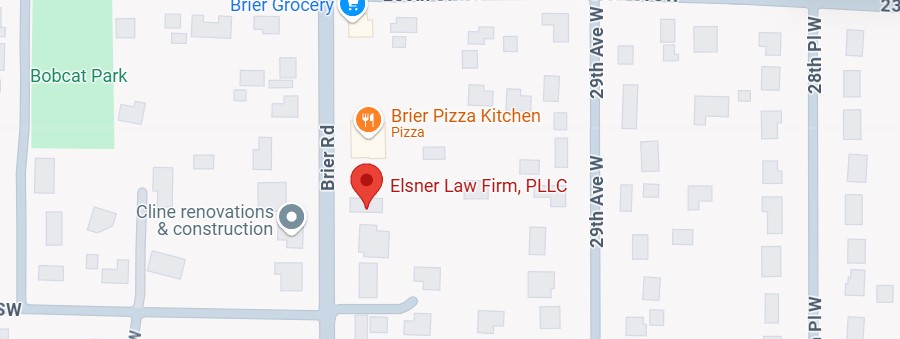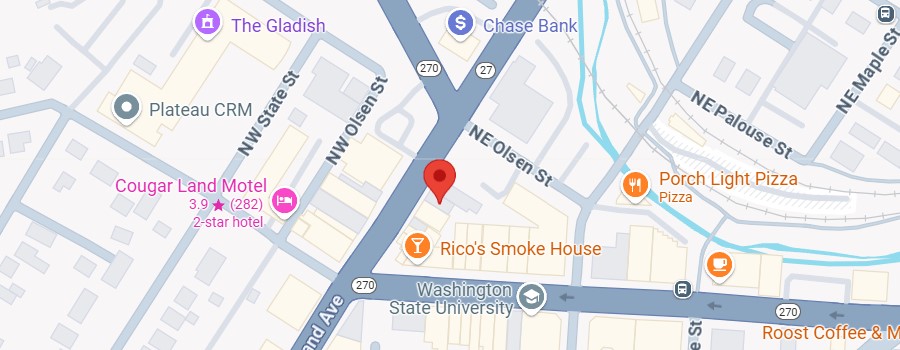Catastrophic Injury Lawyer in Seattle
When catastrophic injuries turn your world upside down, you need a Seattle legal team with decades of combined experience fighting for maximum compensation. At Elsner Law Firm, our personal injury law firm in Seattle has helped countless families recover from devastating injuries through both in-person and virtual legal services. Insurance companies often resist paying the full value of catastrophic injury claims, knowing these cases can equate to millions of dollars. Call for free consultation today – we work on contingency, so you pay nothing unless we win.
Unlike larger firms that treat you like a case number, we provide personalized attention while matching the resources needed for complex catastrophic injury claims. Our team approach combines Justin Elsner’s cum laude legal education from Seattle University with our staff’s collective decades of experience serving Washington state families.
What Qualifies as a Catastrophic Injury?
Catastrophic injuries are severe, life-altering conditions that result in permanent disability, disfigurement, or require extensive long-term medical care, such as traumatic brain injuries, spinal cord damage, and severe burns. For more information on catastrophic injuries, you can visit the Centers for Disease Control and Prevention (CDC) on Traumatic Brain Injury and the National Spinal Cord Injury Statistical Center.
These injuries go beyond what most people consider “serious.” A broken bone heals. Catastrophic injuries change how you live forever.
Common types of catastrophic injuries include:
- Traumatic brain injuries (TBI) – From concussions to severe cognitive impairment
- Spinal cord injuries – Leading to paralysis or permanent mobility limitations
- Severe burns – Causing permanent scarring and functional limitations
- Organ damage – Requiring lifelong medical monitoring and treatment
- Amputations – Loss of limbs requiring prosthetics and rehabilitation, often resulting in significant lifestyle changes and the need for adaptations
- Vision or hearing loss – Permanent sensory impairments
What makes an injury “catastrophic” depends on several factors. The severity must result in permanent changes to your daily life. Age and pre-existing health conditions also matter – the same injury affects a 25-year-old differently than a 65-year-old. Additionally, medical malpractice can lead to catastrophic injuries through misdiagnoses or errors during surgery.
In Seattle, we see these devastating injuries most often at Harborview Medical Center’s Level 1 trauma center. UW Medical Center also treats many catastrophic injury patients requiring specialized rehabilitation services. Older adults are particularly vulnerable to catastrophic injuries resulting from falls. Learn more about Harborview Medical Center and UW Medical Center Rehabilitation.
The financial impact alone can be staggering. Lifetime care costs for traumatic brain injuries often exceed $1 million. Spinal cord injuries requiring round-the-clock care can cost even more.
Common Causes of Catastrophic Accidents in Seattle
Catastrophic injuries in Seattle most commonly result from serious traffic collisions, including car accidents, truck crashes, motorcycle accidents, and pedestrian incidents involving negligence that could have been prevented with proper care. Bicycle and pedestrian accidents also contribute significantly to the incidence of catastrophic injuries.
Seattle’s unique geography and traffic patterns create specific risks for catastrophic traffic accidents. For traffic safety data and prevention tips, visit the Washington Traffic Safety Commission.
Car and Multi-Vehicle Accidents
Seattle’s congested freeways and steep hills contribute to serious crashes. Interstate 5 through downtown sees frequent multi-vehicle accidents. SR-99 construction zones have created ongoing hazards.
High-speed collisions on Highway 520 and I-405 often result in traumatic brain injuries and spinal cord damage. Head-on collisions on arterial roads like Aurora Avenue frequently cause devastating trauma.
Commercial Truck Accidents
Large commercial trucks pose serious risks on Seattle’s highways. Semi-truck accidents on I-5 and I-90 often result in catastrophic injuries due to the massive weight difference between trucks and passenger vehicles.
Delivery truck accidents in downtown Seattle’s narrow streets create unique hazards. Amazon and UPS vehicles navigating steep hills can cause serious collisions when drivers lose control.
Motorcycle and Bicycle Accidents
Motorcycle accidents on winding roads like those near Discovery Park frequently cause severe trauma. The lack of protection makes riders vulnerable to catastrophic injuries even in lower-speed crashes.
Bicycle accidents involving vehicles often result in traumatic brain injuries and spinal cord damage. Seattle’s bike lane system provides some protection, but serious accidents still occur at intersections. For more on bicycle safety, see the Seattle Department of Transportation Bicycle Program.
Pedestrian and Rideshare Accidents
Pedestrian accidents in Seattle’s busy crosswalks can cause devastating injuries. Areas like Pike Place Market and Capitol Hill see frequent pedestrian-vehicle collisions.
Uber and Lyft accidents present unique insurance challenges. Rideshare vehicles operating in Seattle’s downtown core create additional traffic risks during peak hours.
Types of Negligence that Lead to Catastrophic Injuries
Driver impairment, distraction, excessive speed, and failure to follow traffic laws represent the most common forms of negligence causing catastrophic injuries in Seattle traffic accidents. Premises liability incidents, such as slip-and-fall cases, can also lead to catastrophic injuries due to unsafe conditions.
Proving negligence requires showing four key elements: duty of care, breach of that duty, causation, and damages. Each type of traffic negligence has specific patterns we recognize from years of experience.
Driver Negligence
Impaired driving remains a leading cause of catastrophic injuries. Alcohol reduces reaction time and decision-making ability. Drug impairment creates unpredictable behavior behind the wheel. For statistics and prevention, visit Washington State Liquor and Cannabis Board.
Distracted driving has exploded with smartphone use. Texting while driving takes attention away for critical seconds. Even hands-free phone calls reduce awareness of road conditions.
Aggressive driving and excessive speed turn minor accidents into catastrophic events. Following too closely prevents proper reaction time. Road rage incidents escalate into deliberate harm.
Commercial Vehicle Negligence
Truck drivers must meet strict federal safety regulations. Hours of service violations lead to drowsy driving accidents. Improper cargo loading creates dangerous conditions on highways.
Commercial drivers who skip mandatory rest periods put everyone at risk. Trucking companies that pressure drivers to meet unrealistic deadlines often contribute to serious accidents.
Traffic Law Violations
Running red lights and stop signs causes devastating intersection crashes. Failure to yield right-of-way leads to T-bone collisions with catastrophic results.
Improper lane changes on busy freeways create multi-vehicle accidents. Drivers who ignore construction zone speed limits endanger workers and other motorists.
Vehicle Maintenance Negligence
Failing to maintain brakes, tires, and other safety systems creates predictable disasters. Commercial vehicle operators who skip required inspections put profits over public safety.
Defective automotive parts can cause sudden mechanical failures. When manufacturers know about safety defects but fail to issue recalls, they share responsibility for resulting accidents. For recall information, see the National Highway Traffic Safety Administration (NHTSA) Recalls.
What Types of Compensation Can I Receive for Catastrophic Injuries?

Catastrophic injury victims can recover economic damages for medical expenses and lost wages, plus non-economic damages for pain and suffering, with Washington state allowing periodic payment structures for large awards. To maximize compensation, the long-term effects of a severe injury must be properly assessed, often requiring a life care plan. Learn more about life care planning at the American Association of Nurse Life Care Planners.
Washington state divides damages into two main categories. Understanding both types helps you see the full scope of available compensation.
Economic Damages
Economic damages cover financial losses with clear dollar amounts:
- Medical expenses – Past, present, and future treatment costs
- Lost wages – Income missed during recovery and rehabilitation
- Diminished earning capacity – Reduced ability to earn income long-term
- Life care planning costs – Ongoing medical needs and assistance
- Home modifications – Wheelchair accessibility and safety equipment
- Assistive devices – Prosthetics, communication aids, mobility equipment
- Out-of-pocket costs – Economic damages also cover expenses directly related to a catastrophic injury.
Life care planning sets our approach apart from other firms. We work with medical experts to project your lifetime needs. This includes future surgeries, therapy sessions, and attendant care.
Washington law allows courts to order periodic payments instead of lump sums for economic damages. This protects your financial security over time.
Non-Economic Damages
Non-economic damages compensate for subjective losses:
- Pain and suffering – Physical discomfort and emotional distress
- Loss of consortium – Impact on marriage and family relationships
- Loss of enjoyment – Activities you can no longer participate in
- Permanent disfigurement – Visible scarring and physical changes
Unlike many states, Washington typically doesn’t allow punitive damages. The focus remains on compensating your actual losses rather than punishing defendants.
What Should I Do After Suffering Catastrophic Injuries in Seattle?
Seek immediate medical attention, preserve evidence, gather witness information, document everything, and contact an experienced Seattle catastrophic injury lawyer before speaking with insurance companies. Insurance adjusters often attempt to speak with accident victims soon after the incident, aiming to gather information that may undermine the victim’s claim.
The first hours and days after a catastrophic injury are critical for your health and legal rights. Taking the right steps protects both.
Immediate Medical Priorities
Your health comes first. Call 911 if you haven’t already received emergency care. Seattle Fire Department paramedics are trained for trauma situations. For emergency services information, visit Seattle Fire Department.
Follow all medical advice completely. Attend every appointment and therapy session. Missing treatment gives insurance companies reasons to question your injury severity.
Keep detailed records of all medical care. Get copies of hospital records, test results, and doctor’s notes. These documents become crucial evidence later. Keeping detailed records of all expenses related to your injury can also help establish losses for your compensation claim.
Evidence Preservation
Take photos of the accident scene if safely possible. Document vehicle damage, hazardous conditions, and visible injuries. Photos fade from memory, but pictures preserve facts.
Collect contact information from witnesses. Get their names, phone numbers, and brief statements about what they saw. Witness memories fade quickly.
Keep all physical evidence safe. Damaged clothing, broken safety equipment, or defective products may prove crucial to your case.
Documentation Requirements
Start a daily journal documenting your pain levels, limitations, and emotional state. This personal record helps explain your suffering to insurance adjusters and juries.
Save all receipts related to your injury. Medical bills, transportation costs, and equipment purchases all count as damages.
Request copies of police reports when available. Seattle Police Department reports provide official documentation of accident details. For more, visit Seattle Police Department.
Insurance Company Interactions
Contact your own insurance company to report the incident. However, avoid giving recorded statements to other insurance companies before speaking with an attorney.
Insurance adjusters may seem friendly and helpful. Their job is protecting their company’s profits, not maximizing your compensation. Never assume that an insurance representative has your best interests at heart; their goal is to minimize payouts.
Don’t sign any documents or accept settlement offers without legal review. Early offers rarely reflect the true value of catastrophic injury claims.
How We Prove Negligence in Seattle Catastrophic Injury Cases
Proving negligence requires establishing duty of care, breach of duty, causation, and damages through expert testimony, accident reconstruction, medical evidence, and thorough investigation.
Catastrophic injury cases demand extensive proof to recover full compensation. Our team approach gives us advantages other firms can’t match.
Accident Reconstruction and Expert Witnesses
We work with certified accident reconstruction specialists who analyze crash scenes, vehicle damage, and road conditions. Their computer models recreate accidents to show exactly what happened.
Medical experts explain your injuries and prognosis to insurance companies and juries. We maintain relationships with specialists at UW Medical Center and other Seattle institutions.
Economic experts calculate lifetime care costs and lost earning capacity. Their testimony supports damage claims with hard numbers and economic data.
Investigation Procedures
Our investigation begins immediately after you hire us. We preserve evidence before it disappears. Security footage gets deleted, witnesses relocate, and physical evidence deteriorates.
We examine driver logs, maintenance records, and safety training documents in commercial vehicle cases. Traffic camera footage and cell phone records reveal patterns of negligent behavior.
Vehicle accident cases require analysis of crash data recorders, vehicle maintenance history, and driver qualification records. We identify every party who contributed to the collision.
Medical Evidence Development
We work with your treating physicians to document the full extent of your injuries. Independent medical examinations provide objective assessments of your condition.
Life care planners project your future medical needs and costs. These comprehensive plans form the foundation of economic damage claims.
Neuropsychological testing documents cognitive impairments from traumatic brain injuries. Vocational experts assess your ability to return to work.
Justin Elsner’s Experience Advantage
Justin Elsner’s cum laude law degree from Seattle University provides deep understanding of Washington state law. His admission to federal court expands our litigation options.
Recognition as a Super Lawyers Rising Star and National Trial Lawyers member demonstrates peer respect for his legal skills. These credentials matter when negotiating with insurance companies.
Our team’s combined decades of experience handling complex traffic collision cases gives us insights other firms lack. We know which experts to hire and which arguments persuade juries in vehicle accident litigation.
Seattle-Area Resources for Catastrophic Injury Victims
Recovery from catastrophic injuries requires more than legal representation. Seattle offers specialized resources to help rebuild your life.
Medical and Rehabilitation Resources
Harborview Medical Center serves as the region’s only Level 1 trauma center. Their rehabilitation medicine department specializes in spinal cord and brain injury recovery.
UW Medical Center offers comprehensive rehabilitation programs including occupational therapy, physical therapy, and speech therapy services.
Seattle Children’s Hospital provides specialized care for pediatric catastrophic injuries with family-centered treatment approaches.
Swedish Medical Center operates multiple rehabilitation facilities across Seattle with specialized brain injury programs.
Support Organizations
The Brain Injury Association of Washington connects families with resources and support groups throughout the state. Visit Brain Injury Association of Washington.
United Spinal Association provides advocacy and assistance for spinal cord injury survivors in the Pacific Northwest. See United Spinal Association.
Northwest Burn Foundation offers support services for burn survivors and their families. Learn more at Northwest Burn Foundation.
Government and Legal Resources
The Washington State Bar Association provides lawyer referral services and legal education resources. Visit WSBA.
King County Bar Association offers pro bono legal services for qualifying individuals. See King County Bar Association.
Washington Traffic Safety Commission provides accident data and safety information for injury prevention.
Our Seattle office location at downtown Seattle provides convenient access to these resources and the King County courthouse system.
Frequently Asked Questions
What qualifies as a catastrophic injury?
We define catastrophic injuries as severe trauma resulting in permanent disability, requiring extensive long-term care, or causing permanent disfigurement that substantially changes your life.
What qualifies as a serious injury?
Serious injuries require significant medical treatment and recovery time but don’t necessarily result in permanent disability or lifetime care needs like catastrophic injuries do.
What Types of Compensation Can I Receive for Catastrophic Injuries?
You can recover economic damages for medical costs and lost income, plus non-economic damages for pain and suffering, with Washington allowing periodic payments.
What Should I Do After Suffering Catastrophic Injuries in Seattle?
Seek immediate medical care, preserve evidence, avoid insurance company statements, document everything, and contact our experienced legal team for free consultation and guidance.
Types of negligence that lead to catastrophic injuries
Common negligence includes impaired driving, distracted driving, excessive speed, commercial vehicle violations, and traffic law failures that breach reasonable care standards.
Recoverable damages in Seattle-area injury claims
Washington allows economic damages for medical costs and lost wages, non-economic damages for pain and suffering, with periodic payment options for large awards.
How long do I have to file a catastrophic injury lawsuit in Washington?
Washington’s statute of limitations gives you three years from the injury date to file, but we recommend starting immediately to preserve evidence. In Washington, the statute of limitations for personal injury claims is three years from the date of the accident.
Can I still recover compensation if I was partially at fault?
Yes, Washington follows comparative negligence law. Your compensation gets reduced by your percentage of fault, but you can still recover damages.
How much does a catastrophic injury lawyer cost in Seattle?
We work on contingency fees, meaning you pay nothing unless we win your case. Free consultations help you understand your options.
Choose Experience and Personalized Attention for Your Catastrophic Injury Case
Catastrophic injuries demand more than standard personal injury representation. You need a legal team that understands the complex medical issues, lifetime care planning, and substantial compensation required for your recovery.
Elsner Law Firm combines decades of collective experience with the personal attention you deserve during this difficult time. Unlike larger firms handling hundreds of cases, we focus on building strong relationships with each client.
Justin Elsner’s recognition by Super Lawyers and the National Trial Lawyers reflects his commitment to excellence in catastrophic injury representation. Our team approach means multiple experienced professionals work on your case.
We serve clients throughout Washington state from our Seattle office, offering both in-person meetings and virtual consultations to accommodate your recovery needs. Our contingency fee structure means you risk nothing to get started.
Don’t wait to protect your rights and future. Insurance companies begin building their defense immediately after catastrophic accidents. Every day you delay gives them advantages in your case.
Call us today at (206) 447-1425 for your free consultation. We’ll review your case, explain your options, and help you understand the compensation you deserve for your catastrophic injuries.
You’ve suffered enough. Let our experience and dedication help you rebuild your life with the resources you need for the future.



